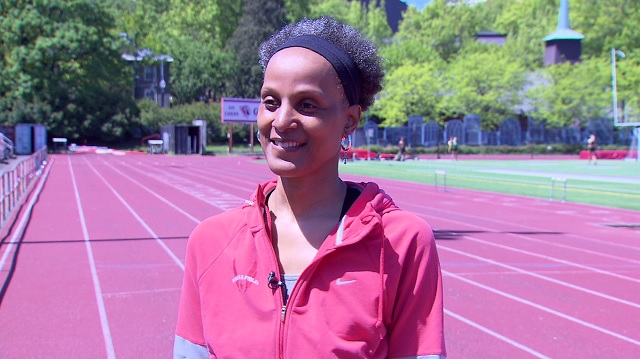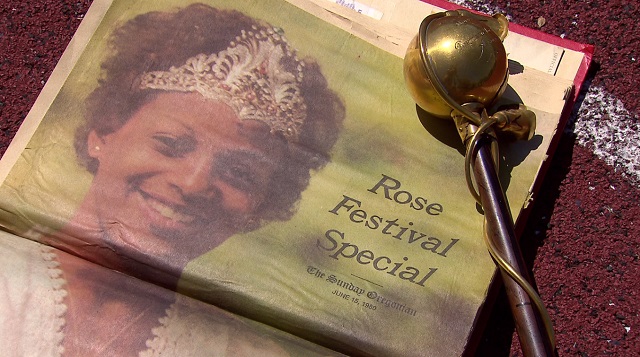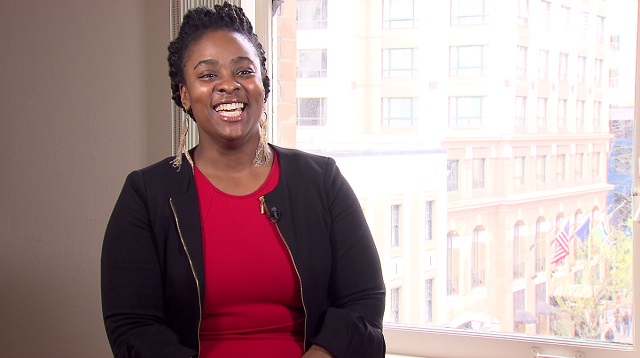PORTLAND, Ore. (KOIN) – Every year, the Portland Rose Festival ushers several local high school students onto the Rose Festival Court, giving them a boost as they prepare to pursue their individual goals and dreams.
One of the princesses from each year’s court is crowned queen and she spends the next year traveling around the country and abroad, representing Portland and the Rose Festival.
But have you ever wondered where those women are today?
KOIN 6 News’ Jennifer Hoff talked to 3 of the Rose Festival’s former Rose Queens to find out what they’re doing, where they ended up and how Portland’s long-held tradition shaped their lives.
Makings of a monarch

The very first Rose Festival Queen was crowned in 1908. Back then, the Rose Court was comprised of the daughters of local dignitaries.
But in 1930, some changes were made to the program. Since that year, one young woman has been chosen to represent her Portland-area high school.

Teri Bowles-Atherton, the president of the Rose Festival Foundation, said choosing a court became less of a popularity contest and more of an academic opportunity.
“I imagine the local city government said there’s probably a better way to get the local communities involved and what better pool than the local area high school,” said Bowles-Atherton.
To make it onto the Rose Festival Court, contestants must go through a rigorous application process that includes carrying out community service and having a 3.0 cumulative GPA.
Candidates must attend a 4A, 5A or 6A high school in Multnomah, Washington or Clackamas counties.
Starting in May of every year, those chosen for the court travel around Oregon through the end of the festival in mid-June to visit events, business and civic leaders, hospitals, senior living centers, youth organizations and other groups.

Each princess gets one-on-one mentorships with female executives from Unitus Community Credit Union (the Rose Festival’s official sponsor).
Each young lady also receives a $3,500 scholarship from The Randall Group for any accredited college, university or trade program, as well as a travel wardrobe.

A queen is crowned ahead of the Grand Floral Parade. The Rose Festival queens don’t receive any additional prizes or awards; the only thing that sets them apart from the rest of the court is that they spend the year representing the Rose Festival until the next queen is crowned.
‘Just be who you are’
The Rose Festival Court reached a milestone in 1980 when it crowned Robin Marks as its first African-American queen.

“My mom said to be myself which is wonderful because the Rose Festival didn’t expect us to be anyone other than who we were,” Marks told KOIN 6 News.
Marks was a track star at Lincoln High School. She continued to compete in track and field at the University of Arizona, where she was also the Fiesta Bowl Queen.
She eventually qualified for the Olympic trials and, later, founded a running camp for kids called the Robin Marks Track and Field Camp Classic.
Today, Marks is a 3-sport coach and a middle school math teacher. She said she gives students the same advice her mother gave her all those years ago.

“Just be who you are and let people embrace that,” she said. “I think people recognize when you’re genuine and we need that nowadays.”
‘It was about leadership and service’
Alisha Moreland-Capuia found herself on the Rose Court in 1998 but she never wanted to be a princess.
The self-described tomboy attended Jefferson High School where she played basketball, soccer and tennis. She said she wore wrinkled jeans and a white t-shirt every day to school.

But she decided to apply for the Rose Court on a dare.
She won the nomination for her school was later crowned queen of the entire court.
“Rose Festival was more than about beauty and the crown, it was about leadership and service,” Moreland-Capuia said.
Now a mother, wife and addiction psychiatrist at the OHSU Avel Gordly Center for Healing, Dr. Moreland-Capuia studied at Stanford and is also an acclaimed public speaker.
She also built a healthcare clinic in Africa.
Looking back at her Rose Festival days, Moreland-Capuia believes the program provides a wonderful opportunity for young women who may one day become future leaders.

“I think it’s improved in many ways,” she said. “I see more khakis and shirts and more and more focus on what folks bring in substance. These young women have done amazing things, they have built whole cities and have volunteered for good portions of their life. They do international work. I mean, these are some pretty powerful women who could one day take up residence on 1600 Penn Avenue.”
A royal boost
Speaking of politics, the Rose Festival helped inspire one queen to work for a top Oregon lawmaker.

Grace Neal Stratton — a graduate of Cleveland High School, athlete and National Honor Society member — was the Rose Festival Queen in 2006.
She credits her time spent on the Rose Court for helping her land a job with Sen. Ron Wyden 5 years ago.
“One of the skill sets I thought I was pretty strong in but realized I learned a lot more in the court process was my public speaking and talking with people from all different walks of life,” Stratton said.
Stratton looks back fondly on her experience with the Rose Festival.

“People were coming up and giving us their business cards for internships, for future job interests, for informational interviews,” she said. “I mean, that’s what this was really about.”
Biggest takeaway
When the Rose Festival concluded and their reigns came to an end, Stratton, Moreland-Capuia and Marks all walked away with more than just scholarships and dresses.
They all said the most important gift they were given was the enduring friendships they forged with the other princesses who became like sisters.
This June, a new Rose Queen will be chosen to reign over Portland and its famous parade in a tradition that’s just as strong as the women who represent their community.
For those thinking of adding their names to Portland’s royal lineage, Bowles-Atherton has a piece of advice:
“Go for it, go for it — even if you have a little bit of doubt. What you will gain going through the process is invaluable; it can’t be replaced.”